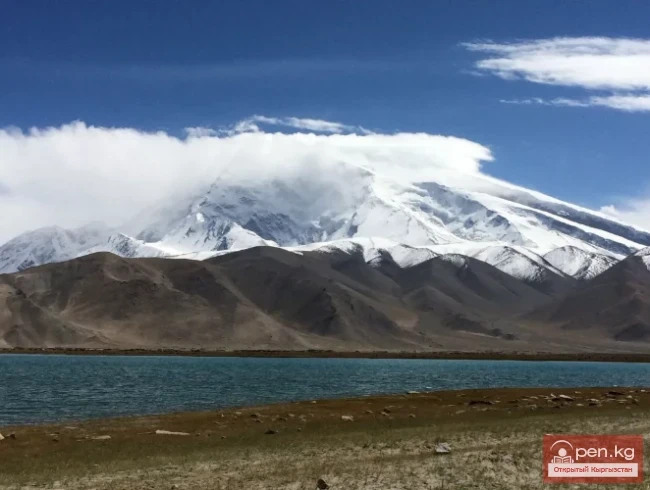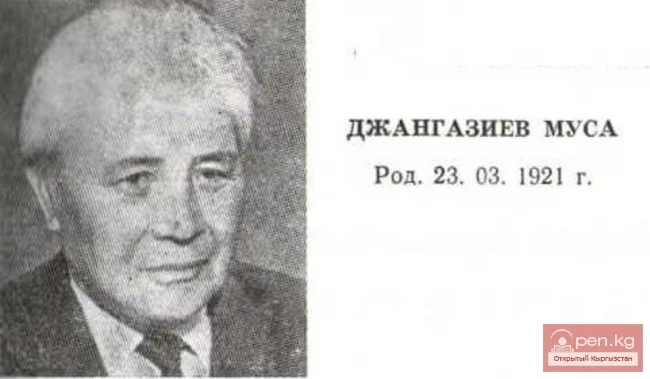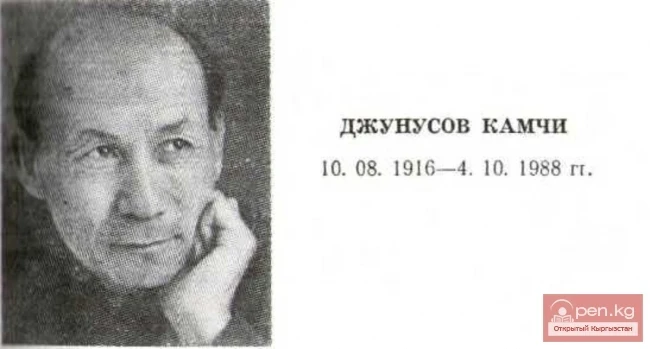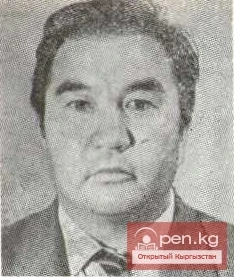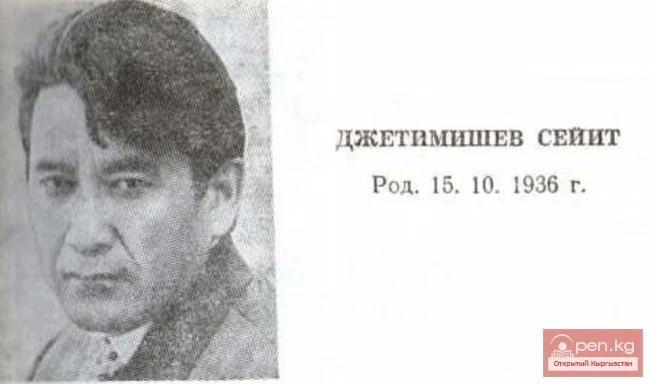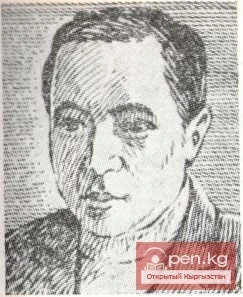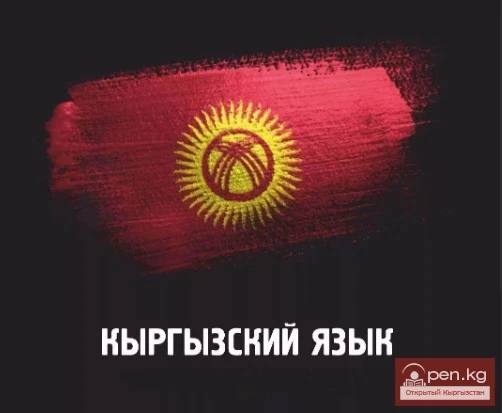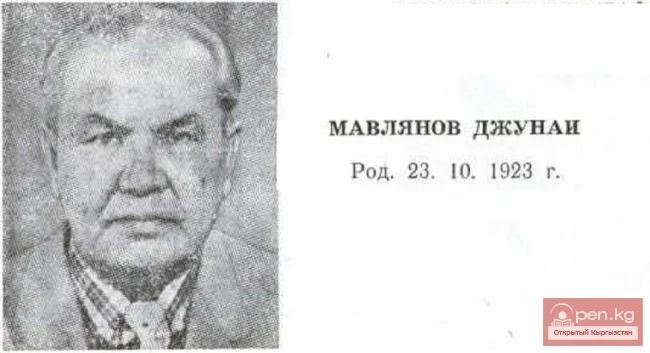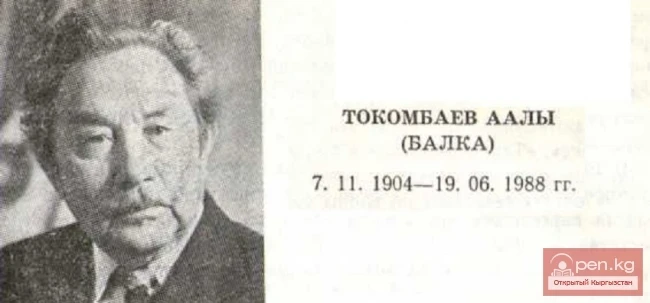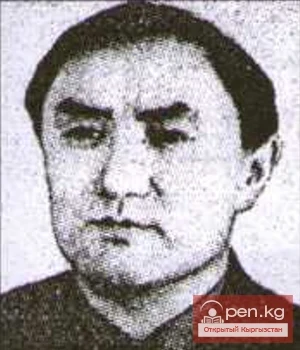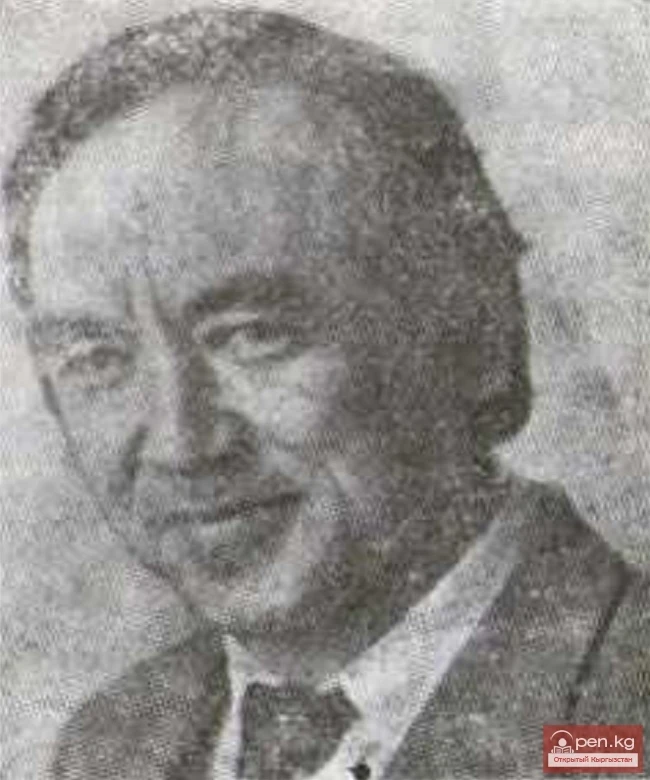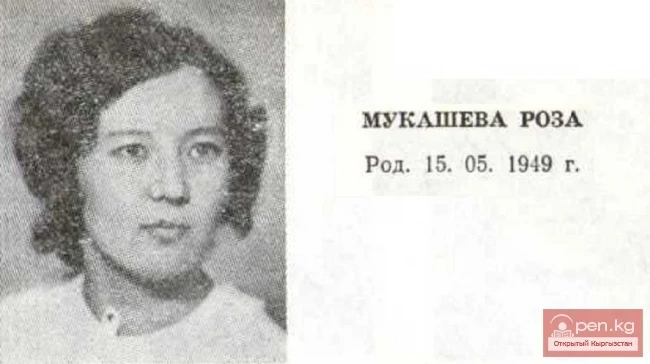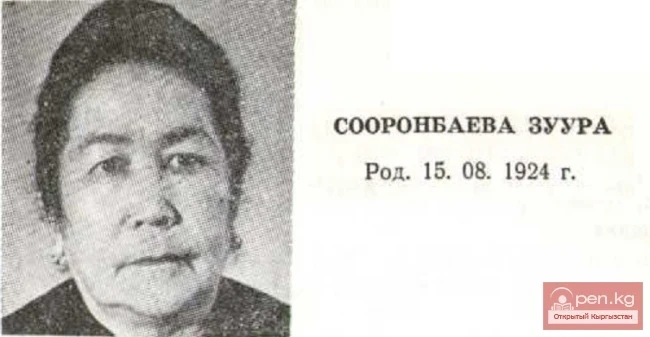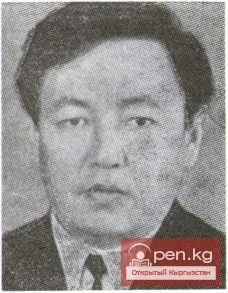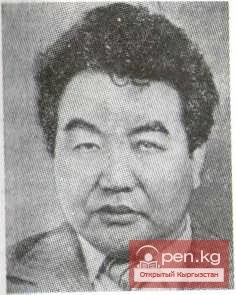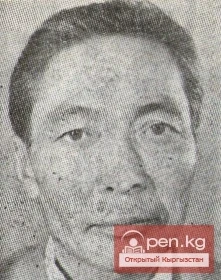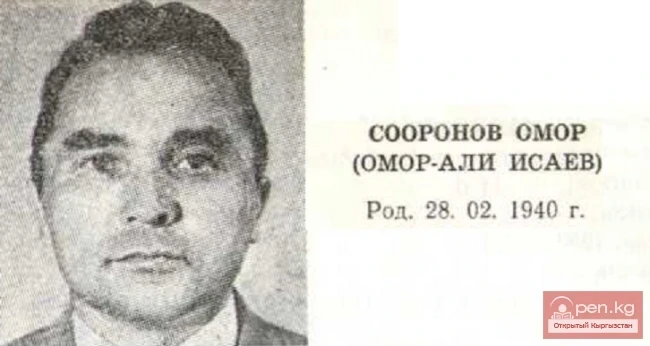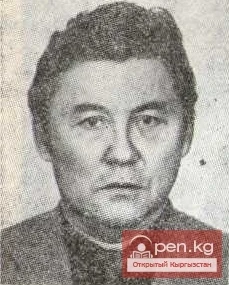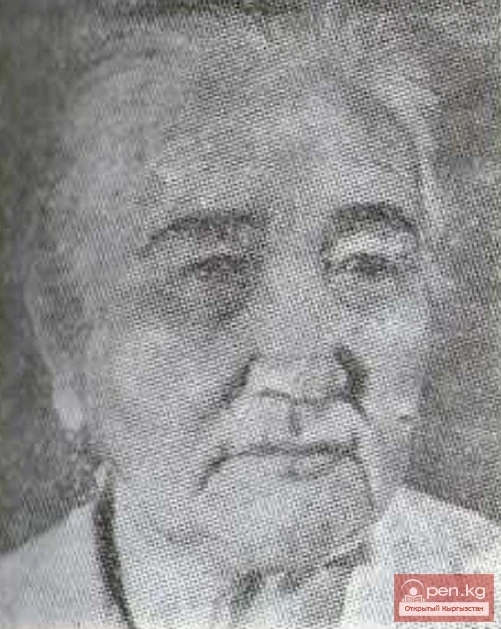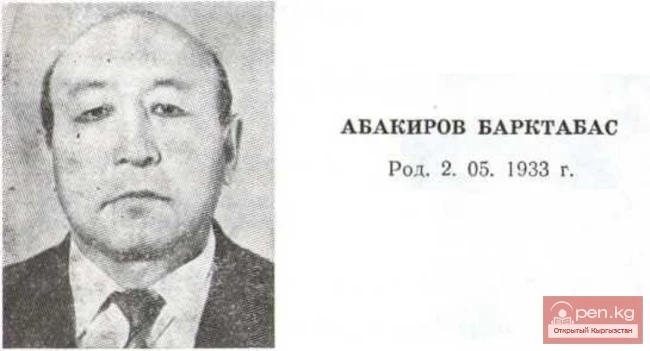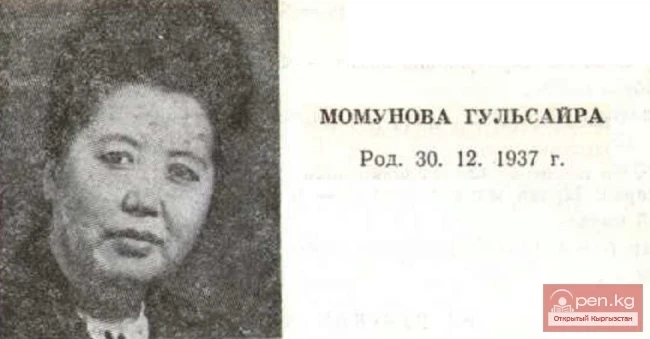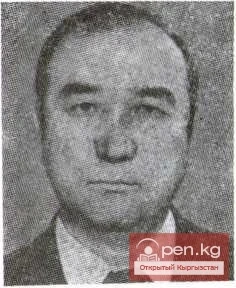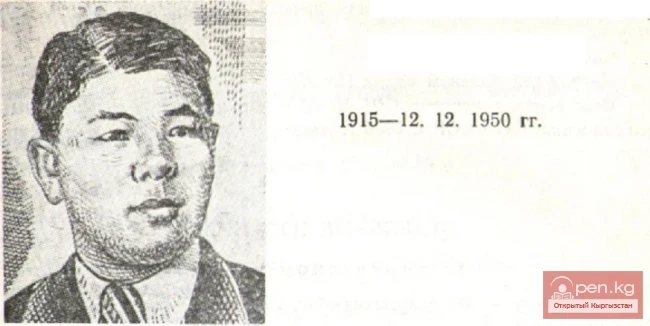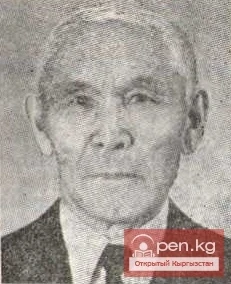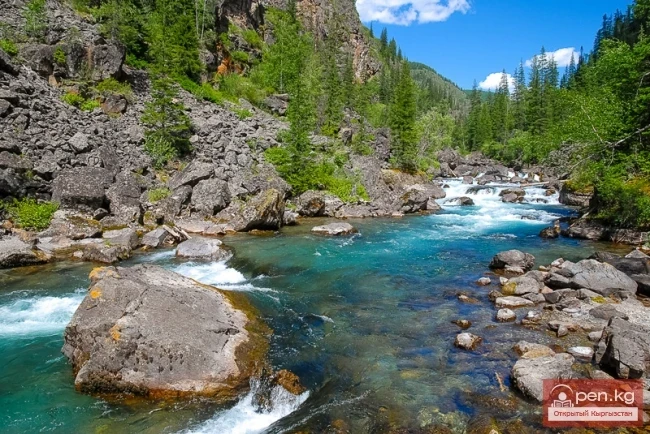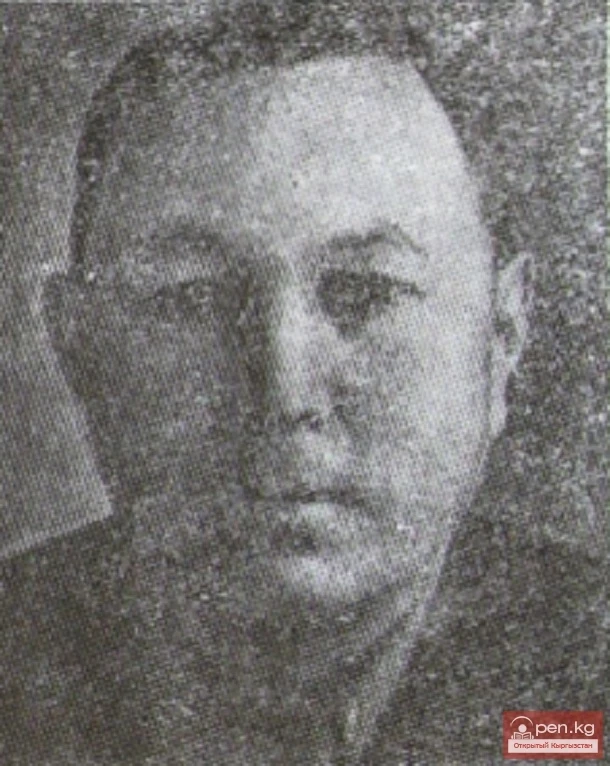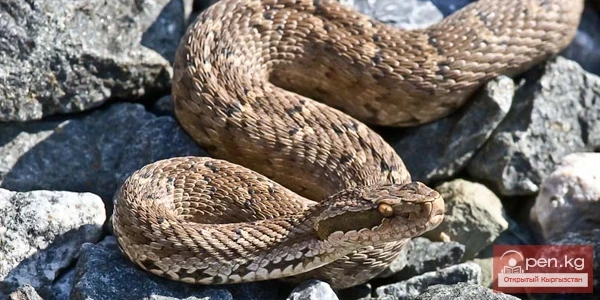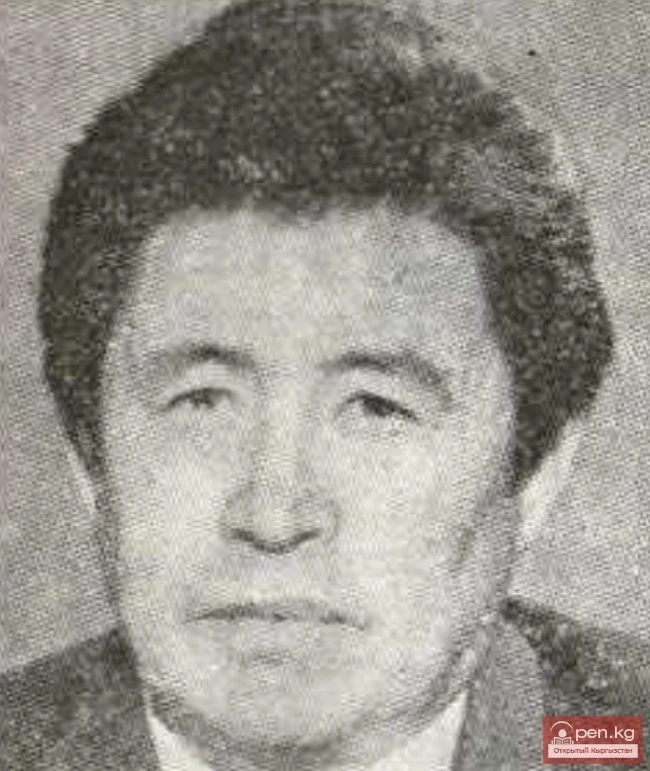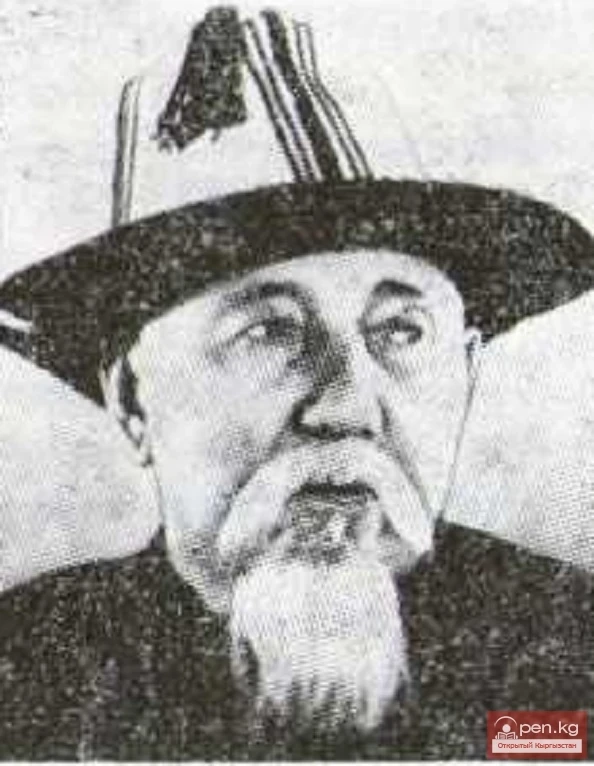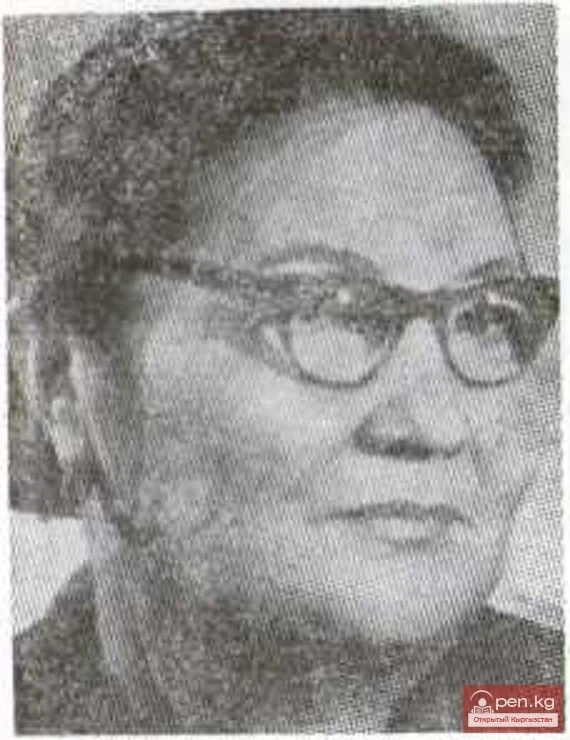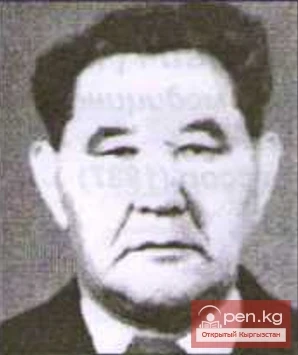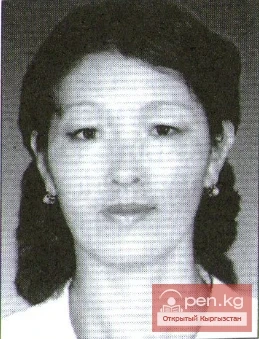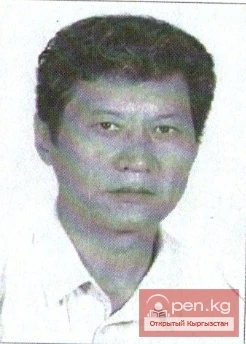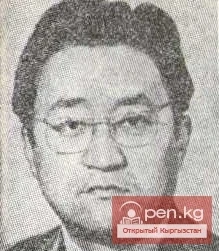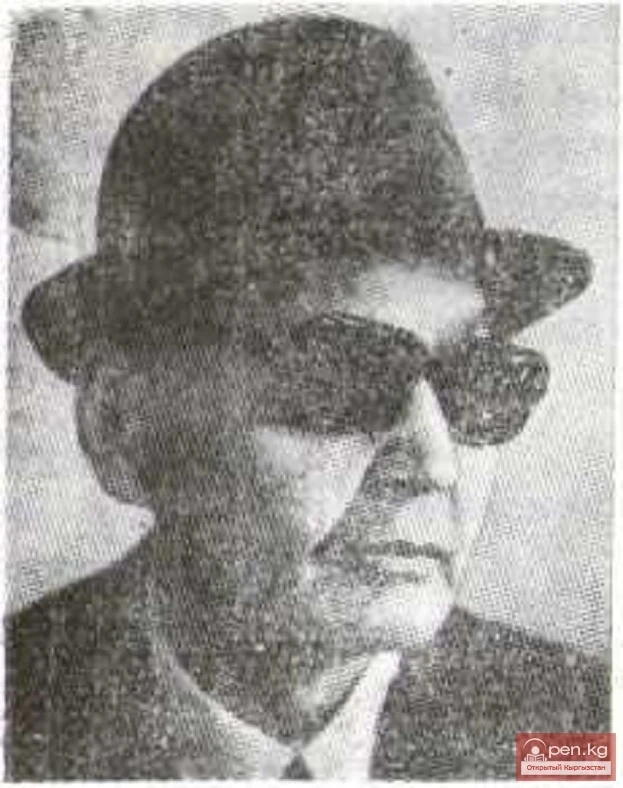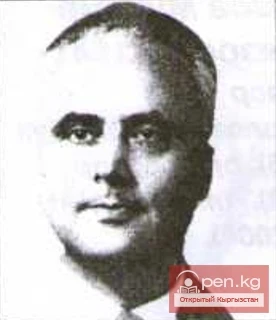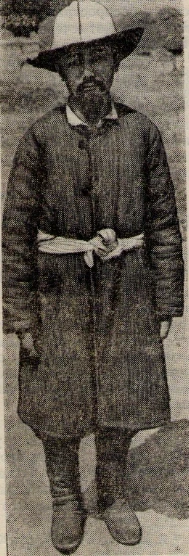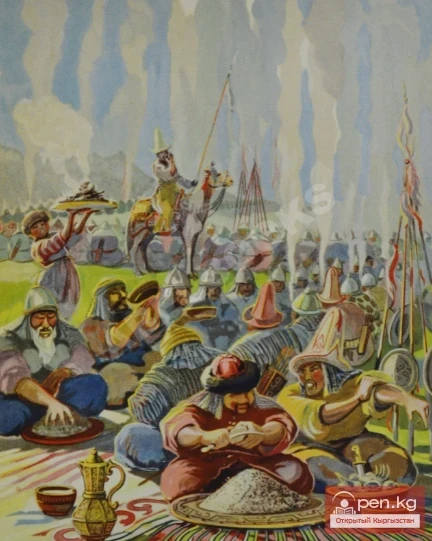
The Great Campaign. The Story of Alambet.
Er Manas, how could it be,
That I do not know the location of Beidzhin?
How could I not know
The ancient Beidzhin that you see in the distance?
This is the place where I ran in my youth in an open dress,
This is the place where my mother gave birth to me,
This is the place where my umbilical cord was cut,
This is the place where I grew from small to big.
Day by day I had successes.
In that great Beidzhin visible in the distance,
There it is, standing out in the haze,
There it is, curved with whimsical outlines,
This is the great Beidzhin.
This is a people with enormous hordes of troops,
This is a people whose numbers are countless!
This is the land I left behind,
This is the fearsome and terrible Chinese people.
If a bloody plot comes to their mind,
They will flood everything like a raging torrent of rainwater.
There, right in front of us, stretches the hilly steppe,
This is the place of tea plunder.
From long travel
The back of Sarala is bruised,
From the insults inflicted by the Kalmyk rulers
My soul is wounded,
And my anger boils.
I remembered all the grievances again upon arriving here.
In that great Beidzhin lying there
There is a deeply dug trench:
There lies an army prepared in advance,
Not a single living soul has returned from there.
There lives the ancient people of China.
Even Suleiman did not rule over the inhabitants of that Beidzhin.
Not only us, but even Alexander
Did not leave his mark in Beidzhin.
No matter how fierce the battles were,
No one has conquered it yet.
Not only us, but even Khazret Aly
Did not reach the many-turned Beidzhin.
You will not have the strength to take Beidzhin;
For even the Chaliyars (53) could not do it, -
This is what I always thought to myself, Manas!
I said nothing to you about Beidzhin,
Because I was afraid. I knew,
That you would gather all your people anyway,
Move them against Beidzhin and destroy it.
After all, Beidzhin is not an easy prey,
You cannot go against it thoughtlessly!
There, see, it is barely visible:
The garden of my father Aziz-khan,
Made of sparkling precious stones:
This is the city of unfortunate Alambet!
There are those whitish-speckled sands, that red foothill -
This is the grassy slope of the mountain belonging to Aziz-khan.
Over there, a black bird flying smoothly –
This is the peri of Alambet, Manas!
There, rising high, is visible –
This is the summer pasture of a thousand herds.
Behind it is visible
The summer pasture of my father, called Haydzhailak.
I will now tell you
About the wonders of this gorge.
Listen, Khan Manas,
My answer to your questions:
Those golden gates –
This is the farthest Beidzhin of Esenkhan,
This is the palace of Esenkhan.
Four horseshoes, cast from gold
Belong to the horse on which Burulcha rides,
The beautiful daughter of Esenkhan.
And there - descending like a haze,
Appearing here and there,
With the barely visible peak of a black mountain, -
This is the Great Beidzhin, Manas,
This is the eternal Beidzhin!
The multitude of Chinese in Beidzhin,
This is the power that can flood everyone!
This is the numerous Chinese people.
The multitude of Chinese hordes
Is impossible to count.
There is no count to the Chinese hordes,
There is no happiness for my lonely head!
Having ruined everything I had,
Leaving my Chinese people behind,
I wander on my Sarala.
The people of forty khans - are forty tribes:
Their descendants cannot fit in the whole world.
Now I will tell about my relatives,
I will tell about my people.
There is that rising rock -
This is the place of gold plunder.
That is visible as a bulge on flat ground,
This is the area called Koshala.
Khan Konurbai,
With a linen belt, in wide boots,
Fortified this pass,
And does not let anyone near it.
This is the pass,
Whose fortifications will be defended
By the united Chinese people.
These mountains fading in the haze -
Are not such that they can be crossed without great preparation.
The one-eyed giant Malgun -
Is not such an enemy that one can approach without preparation.
There, swaying in the reddish mist
This is Kyrkain, Manas!
This place has been chosen for habitation
By the Chinese and Kalmyks of the Tyrgoot clan.
They have foot warriors,
Whom no horse can lift.
There is that huge woman
With hips as wide as a whole embrace -
This is the giantess Kanyshay.
There are those ruined minarets -
This is the place of Barsakelbes.
There the Chinese of Shanghai
Have Khan Kangdzharkol.
Thus Alambet described to Manas the people, the land, the cities, the khans, the warriors of Beidzhin, its palaces, the mountain passes, the paths leading to it. Hearing all this, Manas said:
- Do you know the people and the paths of Beidzhin? I have asked you more than once. Why did you not tell me all this then? If you had described everything to me earlier, I might have long ago attacked Beidzhin, long ago defeated the Chinese, long ago arranged for them an unprecedented slaughter.
It turns out, you have hidden much truth
From me
It seems you have not yet forgotten,
That the countless Chinese are your people,
It seems you were afraid,
That if you tell everything to Manas,
He will destroy your people.
You seem to have wanted, flattering me,
To remain silent somehow,
You seem to have been looking for a convenient opportunity
To retreat back to me in Beidzhin!
Thus Manas expressed his grievance to Alambet.
Alambet replied:
- Manas-khan, here it is - the long-awaited Beidzhin!
You have long been offended by me,
So chop off my head, for I am here!
You have turned my thoughts inside out,
You have forced me in this place
To tell you all the unvarnished truth.
Alambet began to explain to Manas the reason for his silence and continued his story:
- In Beidzhin there was a renowned Chinese khan Aziz-khan. He had sixty wives until the age of sixty, but despite this, he had no children. The grown-up sons of other khans flaunted before him, the son of Alooke-Konurbai forcibly took from him the pasture of Khandzhailak. The son of Esenkhan Berukyoz began to rule over Great Beidzhin.
One day Azizkhan went to Kara-khan, the oldest khan of Beidzhin, and said to him:
- Help me choose a girl who would give birth to a son for me.
Karakhan ordered the forty khans to gather women from their possessions no older than thirty-three and no younger than seventeen. They were brought in a line, one after another, and given for testing to forty ayaram. From the crush of the multitude, many girls perished. Many of the guards who watched over the girls and young women had their heads chopped off for this. But none of the women and girls pleased the ayaram (54).
When everyone stood in indecision, they placed twelve girls, daughters of Khan Soorondik, before the testers, and then one of the ayaram stopped the youngest, seventeen-year-old Altynai, and said that this girl should give birth to an extraordinary warrior. But Kara-khan, not believing him, demanded proof. Then the ayaram ordered Altynai to urinate on the ground, and her urine dripped into the ground forming a pit two quarters and four fingers deep. At that time, the girl was already carrying a three-month-old baby in her womb (55).
Six months after the wedding, Altynai gave birth to a son and, hiding this from everyone, sent him to the khan, her father. The child fell from the womb already circumcised, and when he was lifted, black blood flowed from both of his fists. Throughout Beidzhin at that time, there was an earthquake for seventy days.
When nine months had passed since the wedding, Altynai took her son and carried him to Aziz-khan, saying that she had given birth to an heir for him.
No one could give the child a name until a passerby named him Alambet. This child was me, Manas!
In my infancy, I grew, spoiled by everyone, and when I turned six years old, Aziz-khan sent me, along with other boys, to Lake Avergene - to learn the secret wisdom from the one-eyed and sixty-headed ajidara. All my companions, except for ten, perished upon encountering the terrible monster. I studied sorcery with him for six years and learned to cast spells on the weather using the stone jai. Among his students, only Kodzhodzhash, the son of Karadzhai (56), studied three months longer than me and surpassed me in the secret science. This Kodzhodzhash is the fastest runner and the most accurate shooter. Now I have heard that he has been ill for ten months. If he is dead, then now no one in Beidzhin is frightening to me.
When I reached my twelfth year, I encountered Konurbai and in Kyrkain, in the desert Itelbes, I knocked him off his horse six times, and then pursued him to the very camp of Esenkhan. When I asked Esenkhan:
- Give me one of the possessions of your forty khans!, - he replied: - You are still a child, and your head has not filled with wisdom.
I became enraged, planned to kill him, and with this thought, I began to wait for him at the gates of his exit. But suddenly I saw his daughter, the round-faced beauty Burulcha. She captivated my soul, and I said to her:
- You will be mine.
The girl replied:
- I was born from a ray, you are also the son of a sacred ray. If you remain a Chinese, I will never be yours. But if you go to the Buruts and become a Muslim, then I will wait for you.
I became angry at her words and wanted to chop off her head, but she quickly passed through the gates and disappeared.
About this incident, Esenkhan reported to Kara-khan and complained to him about me. Kara-khan ordered me to be brought and said:
- If you need a kingdom, then go, sit on my throne. I sat until old age, but there was no result.
With these words, he placed a taj on my head and seated me on the throne. In a dream, a duvana appeared to me and said:
- You have mistakenly sat on this throne. This is not your rightful place. Under the carpet covering the throne, a bottomless pit has been dug. If you sit for more than twenty days, you will fall into it and perish.
At that time, my mother Altynai sent me a letter:
- Come quickly, for I am lying on my deathbed.
Then I killed six khans of Kara-khan and went to my mother. The distance of forty days I traveled in half a day on my steed. That night, a duvana appeared to me in a dream and converted me to the Muslim faith. In the morning, my mother told me that she is the daughter of a ray and I am the son of a ray. We decided to flee to the Buruts.
- Convert your father to the faith of Islam, if he does not agree, then chop off his head, - said my mother.
My father refused, and I beheaded him.
Together with my mother, I left Beidzhin. We were accompanied by the shepherd Madzhik, a captive young Muslim, the son of the killed Konurbai, a merchant-hodja returning with his caravan from pilgrimage to Mecca. With the help of Madzhik, I gathered a retinue of forty jigits - shepherds, and we set off on our way. By the order of Kara-khan, the Chinese troops set out to pursue me. They surrounded us, and a fierce battle ensued, so that the manes of all the horses were stained with blood. I chased after Konurbai, and at that time the Chinese killed my mother and slaughtered my forty choro. I buried their bodies, and the two of us, Madzhik and I, reached Talchok in twelve days. The golden clothes of my father Aziz-khan I buried right here, under this rock.
And Alambet, tearing the earth, pulled out the golden robe of his father.
The warriors listened to Alambet's story and moved on toward Beidzhin. On the way, Alambet said:
- If I delay, then not more than three months, but if I happen to perish on this campaign, then load my bones on Sarala and take them to Talas. If you yourself remain safe and sound, then do not forget that Aruuke, at our departure, was carrying a three-month-old child under her heart. If a boy is born, then name him Kulchoro!
He will be a warrior more powerful than I. And marry Aruuke to Madzhik.
***
After several days of travel, Alambet rode ahead, while Syrgak stayed behind. Suddenly, Syrgak began to see, both in front and behind, both to the right and left, enemy archers aiming at him, terrifying monsters, whistling ajidars, roaring lions, and tigers.
Seeing them, Syrgak thought:
- Alambet has evidently drawn me into a deadly abyss. I will ask him what these creatures are. If I feel that he is being cunning, I will chop off the head of slave Alambet.
And he began to urge his horse to catch up with Alambet. When they met, Alambet explained to him what was happening:
- When I lived in Beidzhin, I heard that Chinese seers spoke of the coming of Manas, and at that time I knew nothing about the Kyrgyz. Then I summoned from the city the jinns, peris, and sixty ayaram, forced them with spells to unleash all those creatures that have now appeared before your eyes for the protection of the roads. I learned all kinds of sorcery from them, and then I slaughtered and destroyed them all.
With these words, Alambet cast a spell, and all the visions of Syrgak suddenly dispersed at once.
Alambet told Syrgak about his agreement with Burulcha, that she longs for him, that this year Konurbai has proposed to her, but she refused him, and from this, Konurbai began a feud with Esenkhan.
Syrgak, who had previously known nothing about Burulcha, felt ashamed of his suspicions, and he said:
- If so, then I will summon fear and confusion in Beidzhin, which even the waters of the flood have not reached, I will unleash a black night full of horrors upon the Chinese, I will place Burulcha on the back of my horse and take her away.
But Alambet calmed the agitated Syrgak.
- Do you see that, darkening, is visible there: this is the impregnable pass. The Chinese-populated Beidzhin is not such a city that one can enter without effort. On guard of the city are the fox, kuldja, and the one-eyed giant Malgun. They inform the Chinese of the approach of the enemy from a distance of six months' journey.
Having reached the place where the fox was guarding, Alambet began to cast a spell on the weather. When the cunning fox moved to inspect her possessions, Alambet shot her in the leg, and when she wanted to escape on three legs, Syrgak caught up with her and shot her dead. Alambet approached, cut her into six pieces, and rode into the depths of the forest. He knew the place where Konurbai's military armor was hidden, which he used to wear during campaigns. Finding this place, he took all of it and put it on himself. On Sarala, he threw a cover made by Kanykey, and Sarala became just like Konurbai's horse Algara.
When Alambet reached the wonderful kuldja, she mistook him for Konurbai and rushed to him. Then Syrgak shot the kuldja at close range.
Alambet and Syrgak moved on and reached the one-eyed giant Malgun. Deceivingly, Alambet delved into the forest and sat by the bank of a stream flowing from under the roots of a sprawling chinar. Here he killed one long-eared balban, who came for water with a vessel made from thirty bull hides, put on his clothes, filled the vessel with water, and, taking on the appearance of a water carrier, set off to the palace of the giantess Kanyshay.
At that time, Kanyshay gathered her people, her balbans, started games and festivities, served guests arak, and celebrated the New Year. Amidst the games and dances, Alambet stealthily entered the palace, poured poison into the vessels with arak, and poisoned many warriors. Kanyshay, recognizing Alambet, engaged in bloody combat with him. Bozkertik, Kandzharkel, Muzkandik, and other warriors of hers were slaughtered.
Then Kanyshay untied her argamak and rushed towards Beidzhin. And Syrgak, who had arrived with Sarala tied, joined Alambet.
Syrgak chased after Kanyshay and threw her off her horse. Following him, Alambet jumped up and chopped off her head. They slaughtered and scattered all the Chinese warriors guarding the roads and approached Beidzhin itself.
Alambet saw the places where he was born and grew up, tears welled up in his eyes, and he shared his sorrow with Syrgak.
I have no remorse in my heart, Syrgak!
For Beidzhin, which even the waters of the flood have not reached,
I would not become a defense now, Syrgak,
Although I was born and grew up here!
As a six-year-old playful child,
I ran here with my shirt open,
Here I chased butterflies,
Here I grew up and matured, Syrgak!
When I was a boy of playing age,
When I sat on my golden throne,
That visible hill
And the high mountain rising behind it.
With a blue-speckled landslide of stones,
This area Khandzhailak belonged to my father.
The sky above me has frowned, Syrgak!
When Beidzhin rises in my memory,
Horrors of the last judgment day fall
Upon my head, which is like a kneecap,
Sixty misfortunes descend at once, Syrgak!
This is the very Beidzhin,
That experienced the mischief of Alambet.
You cannot say anything, Syrgak,
There is no support for me in this city.
If Alambet were a great khan,
If he divided the Chinese into thousands,
If among many not one, then another
Would become my faithful companion,
Why would I then complain, Syrgak!
Why would I leave my people, Syrgak!
For having abandoned my people and left them,
What goal would I have achieved, Syrgak!
About the places where I was born and grew up,
I will tell everything at once, Syrgak!
After this, Alambet showed Syrgak the city that was built at his request, the gardens that were planted for him, the ditches that were dug during his time. He showed the gardens where he ran after butterflies in his childhood. He showed the palace where he ruled for six days instead of his father, but the palace turned out to be destroyed. He showed the chinar under which his mother, Altynai, gave birth to him, but the chinar had already dried up, only young shoots were bursting violently from under its gnarled roots. This saddened Almu.
They moved on like this, and suddenly Alambet accidentally found his old pipe, which he had lost in the heat of battle with the mighty Konur when he fled from China.
The warriors approached the bubbling river and swam across its swift currents. The river was called Sarysu.
Alambet put on the khan's clothes of his father on the other side, gave Syrgak to wear the same rich clothes, and they arrived in the possessions of Khan Manchu, the Giant of Neskara.
No one recognized Alambet there: everyone decided that the ruler of Beidzhin had arrived and bowed low to him.
Then Alambet commanded them:
- A terrible Manas is moving towards us, go and block his way! - and sent the troops of Manchu under the command of Jolo and Neskara to the places of Barsakelbes, where a terrible cold raged.
As for himself, he declared that he would go to prepare the troops of Beidzhin, and set off with Syrgak to the capital of Esenkhan. The warrior was very eager to see the beautiful Burulcha as soon as possible.
And that night, Burulcha saw Alambet in a dream. In the morning, she called to her Birmskal, the daughter of Aydzhandzhun, and asked her to interpret the dream. Then Birmskal said to her:
- Your dream is good, you cannot say otherwise! Soon two lions will come to us - Syrgak and Alambet.
Burulcha's heart overflowed with joy at this news, she removed all the guards of the palace from their posts and sent them on errands. She gathered the daughters of forty khans, beauties and favorites, started games and songs, and arranged a feast.
And suddenly, in the midst of the festivities, Alambet and Syrgak arrived at the palace. None of the girls recognized Alambet. Only Burulcha recognized him and bloomed with happiness from the meeting.
Amidst the noisy games and merriment, no one noticed how Alambet and Burulcha were whispering, and they agreed then that he would soon return and take her away. For now, he accepted the gift of the beauty, intended for Manas, and both warriors set off on their way back.
The Tale of Manas. The Great Campaign. Reconnaissance



